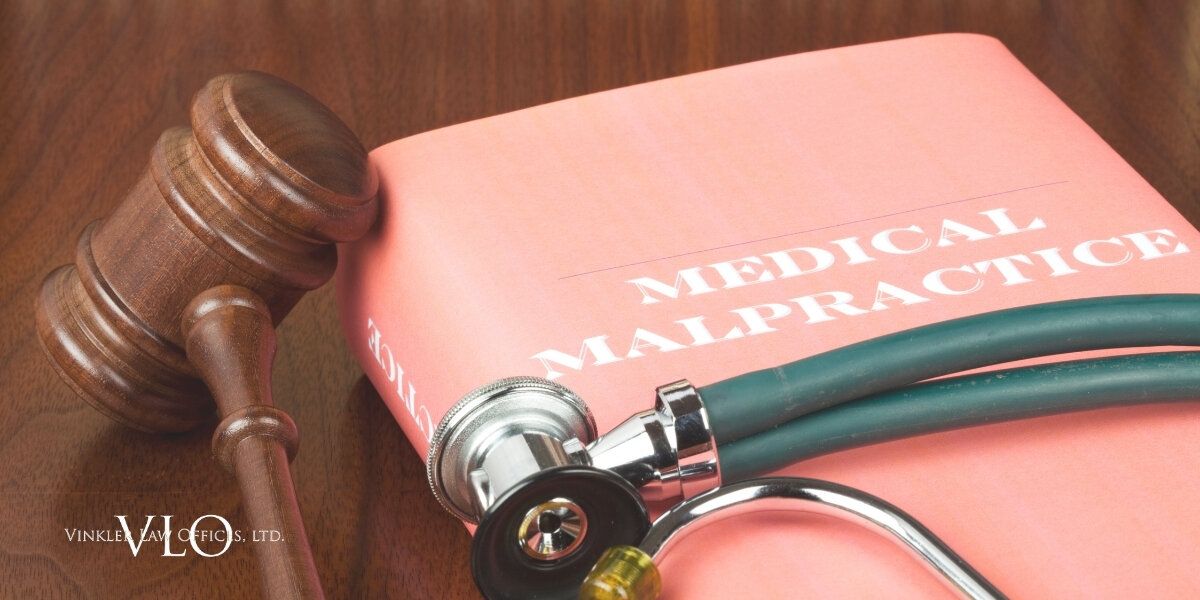Common Reasons for Medical Malpractice Lawsuits in Illinois

In the medical profession, patients rely on their doctors to provide them with safe, effective medical care. When a doctor fails to meet this duty of care, it can have devastating consequences for the patient. In most cases, this failure will result in serious injury or death. Patients or their families may be able to recover compensation for their losses through a medical malpractice lawsuit and working with medical malpractice attorneys in Chicago.
Medical malpractice by physicians and other healthcare providers has devastating consequences for patients and their loved ones. It can lead to serious injuries or death, and have lasting consequences on victims and their families.
The five most common reasons for medical malpractice lawsuits in Illinois are discussed below:
1. Misdiagnosis
One of the most common reasons for medical malpractice lawsuits is misdiagnosis, which includes the failure to diagnose, as well as delayed diagnosis. In this type of case, a physician failed to properly diagnose a condition or disease that has resulted in serious injury or death.
Misdiagnosis can occur for many reasons:
- A doctor may lack knowledge or expertise about a particular condition and therefore be unable to recognize it.
- A doctor may fail to follow up on test results like x-rays, ultrasounds, and blood tests that could have pointed out an ailment earlier than detected by other means (e.g., physical examination). This is a “lack of diligence” by your physician.
- A doctor may fail to treat an ailment appropriately once they have made a diagnosis based upon incomplete information provided by diagnostic tests (e.g., X-ray) or examinations made at your request. This includes the failure to prescribe proper medication.
2. Surgical or Procedural Errors
Surgical or procedural errors can result in infections, permanent disability, or death. According to the American Medical Association (AMA), one in ten surgeries result in complications. Additionally, the Centers for Disease Control and Prevention estimates that approximately 440,000 surgical procedures result in serious complications each year.
There are two main types of surgical errors: negligent acts and non-negligent acts. Negligent acts occur when a physician or other healthcare provider fails to provide care that meets acceptable standards and results in harm to an affected patient. Non-negligent actions occur when a healthcare provider delivers adequate care within acceptable standards and does not cause harm to a patient but causes injury due to inexperience or lack of training.
3. Medication Errors
A physician is responsible for more than just diagnosing a patient’s illness. They are also responsible for advising the patient on how to best treat their condition, usually with medication. When physicians prescribe the wrong drug or an incorrect amount of a drug to a patient the results can be devastating. Medication errors are made every day in doctor’s offices, hospitals and pharmacies. These errors can include the following:
- Giving the wrong drug dosage or the correct dose at the wrong time;
- Giving someone a drug they have an allergy to; and
- Giving a patient medication that interacts negatively with other drugs they are taking (drug interactions).
4. Anesthesia Errors
Anesthesia errors occur when a medical professional fails to administer anesthesia properly during surgery or other medical procedure.
Anesthesia can be administered through inhalation (gas) or injection, and most procedures are performed under general anesthesia, which means that the patient is unconscious and cannot feel pain or move during the procedure.
Anesthesia errors range from minor incidents, such as a needle prick or dropping an instrument into your mouth during surgery, to more severe issues, such as administering too much medication or leaving surgical instruments or materials inside your body after surgery.
5. Birth Injuries
If you or a loved one was injured during the birthing process and sustained a serious injury, it is vital to understand how these injuries can occur. Birth injuries are often lifelong and often result in a lifetime of medical treatment. Types of birth injuries include brain damage, cerebral palsy, and other conditions that require ongoing care throughout your child’s life. These birth-related problems can also affect other areas of your child’s development: physical, cognitive, and social skills may be affected by a number of factors, including those related to medical negligence during an infant’s delivery.
Birth injuries can be caused by many factors, including negligence on behalf of healthcare providers such as doctors or nurses involved with prenatal care; lack of training for staff members; lack of preparation on behalf of healthcare facilities; or failure by hospitals/medical facilities to follow protocols designed to prevent harm from occurring during pregnancy/delivery/postpartum period (such as proper handwashing).
Birth injuries can also be caused by factors related to the baby’s health condition, such as congenital defects or malformations. While many birth injuries are unavoidable and may not result from negligence on anyone’s part, some cases can be deemed preventable if medical experts provide proper care.
Medical malpractice can take many different forms. If you or a loved one have suffered harm due to physician negligence, Vinkler Law can help.
There are many different ways that a medical professional can cause harm to a patient. Doctors and nurses have the power to prevent or reduce pain, but they also can cause great suffering when mistakes are made. If you believe your healthcare provider was negligent, you may be eligible to seek compensation for medical expenses, lost wages due to missed time at work (or inability to work), pain and suffering caused by the injury itself, as well as emotional distress resulting from being harmed due to another person’s negligence.
Contact Vinkler Law Medical Malpractice Attorneys in Chicago
Medical malpractice cases in Illinois are highly complex, so it crucial to hire a skilled and experienced attorney with a deep understanding of medical negligence, healthcare law, and malpractice litigation is critical. At Vinkler Law, our medical malpractice attorneys in Chicago have a record of success that will help you gain peace of mind and the expertise you need to help you receive compensation for the harm and loss caused by preventable medical malpractice. Contact us today for a free case evaluation.
Schedule Now Form with Buttons
Complimentary Case Review Available Now





